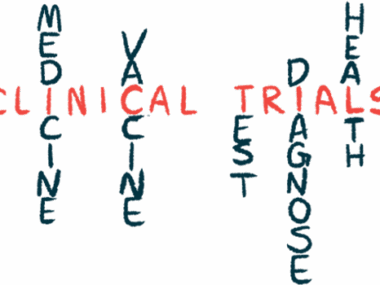Phase 2 trial data of namilumab for sarcoidosis expected in 2024
RESOLVE-Lung trial may still be recruiting up to 100 patients in US, Europe
Written by |

Top-line data from an ongoing Phase 2 trial testing Kinevant Sciences’ experimental therapy namilumab in adults with pulmonary sarcoidosis are expected in the second half of 2024.
That’s according to a business update from Roivant Sciences, the parent company to Kinevant.
Called RESOLVE-Lung (NCT05314517), the Kinevant-sponsored trial may still be recruiting up to 100 pulmonary sarcoidosis patients at sites in the U.S. and Europe. More information is available on the trial’s website.
“We’re incredibly excited about the progress we’ve made in this quarter alone and look forward to announcing additional clinical results in the upcoming months,” Matt Gline, Roivant’s CEO, said in the business update.
In sarcoidosis, small clumps of immune cells called granulomas form in the body’s tissues. Pulmonary sarcoidosis, when granulomas form in the lungs, can be accompanied by symptoms such as shortness of breath, coughing, and decreased lung function.
Patients are often treated with corticosteroids, such as prednisone, that broadly suppress inflammation. These medications are not always effective in the short term and are associated with serious side effects in the long term.
Namilumab designed to block pro-inflammatory molecule called GM-CSF
Namilumab is an antibody designed to block granulocyte-macrophage colony-stimulating factor (GM-CSF), a pro-inflammatory molecule thought to be involved in granuloma formation and maintenance.
GM-CSF levels are significantly elevated in sarcoidosis patients. In animal models, increased GM-CSF levels lead to granuloma formation, scar tissue buildup, and tissue damage. Conversely, a lack of this molecule prevents the formation of granulomas even in the presence of the usual triggers of granulomas.
Kinevant believes that by targeting GM-CSF, namilumab will be able to treat pulmonary sarcoidosis with fewer side effects than other therapies.
The treatment has been tested in more than 300 people to date, where it was found to be well-tolerated, according to the company.
In RESOLVE-Lung, which began dosing in November, eligible participants have to be living with a pulmonary sarcoidosis diagnosis for at least six months and must be experiencing related symptoms. All must be vaccinated against COVID-19.
For those using regular corticosteroids, their dosage will be decreased to 5 mg or less per day throughout the study. Use of other immunosuppressive therapies will be stopped at the start of the trial.
Trial participants will be randomly assigned to receive monthly under-the-skin (subcutaneous) injections of namilumab or a placebo for about six months after two starting doses on days 1 and 15.
Main goal to evaluate proportion of patients requiring rescue treatment
The main goal is to evaluate the proportion of patients who require rescue treatment for worsening sarcoidosis during the trial.
Secondary goals include changes in lung function, time to requiring rescue treatment, corticosteroid dose tapering, and effects of lung symptoms on daily life, as well as the therapy’s safety and tolerability. Patients will also be assessed for the presence of antibodies against namilumab.
After completing the six-month treatment, patients will have the option to continue to an open-label extension phase where all will be given namilumab for an additional 28 weeks, or a little more than six months.
Possible side effects of namilumab include flu-like illness, runny nose, headache, temporary increases in liver function tests, and decreased white blood cell counts, according to Kinevant.
RESOLVE-Lung is expected to be completed in January 2025.







